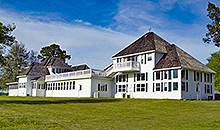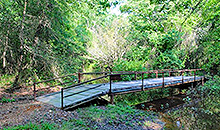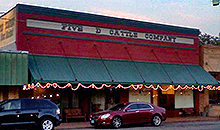Main Menu
Cass County Data
Cass County Communities & Places
Genealogy & History Links by USGHN
Important Cass County Addresses
Sponsors
Cass County Neighbors
Bowie County, Texas
Caddo Parish, Louisiana Genealogy & History Network
Marion County, Texas
Miller County, Arkansas
Morris County, Texas
Other Websites
Welcome to Cass County Texas Genealogy & History Network!
Welcome to the Cass County, Texas Genealogy & History Network. Our purpose is to provide visitors with free resources for genealogical and historical research. To share your genealogy or history information, send an email to txghn@outlook.com and we will happily include it here. For other Texas Counties, visit the Texas Genealogy & History Network state website and go to the appropriate county. Thanks for visiting and good luck with your research! |
|
About Cass County, Texas...

Cass County, bordered by Arkansas and Louisiana on the east, is located in northeastern Texas on the state's eastern boundary. Linden, the county seat, is in the south central portion of the county fourteen miles southwest of Atlanta, the county's largest town. The county is in the East Texas timberlands, an area that is heavily forested with a great variety of softwoods and hardwoods, especially pine, cypress, and oak.
The Caddo Indians, an agricultural people with a highly developed culture, had occupied the area for centuries before the arrival of Europeans, but disease and threats from other Indians forced them to abandon the region in the final years of the eighteenth century. During the 1820s bands of Shawnee, Delaware, and Kickapoo Indians inhabited the area for a few years, but they abandoned their settlements in the mid-1830s.
White settlement in the area that became Cass County began in the 1830s. The county was formed from Bowie County in 1846. Jefferson was chosen as the first county seat, but, after several fiercely contested elections, in 1852 Linden became county seat. The county's boundaries were reduced in 1860 with the  formation of Marion County, but, with the exception of small adjustments, have remained unchanged since that time.
formation of Marion County, but, with the exception of small adjustments, have remained unchanged since that time.
The county was originally named Cass County in honor of Lewis Cass, a United States Senator from Michigan who had favored the annexation of Texas. During the secession crisis Cass, who had formerly been known as a Northern man with Southern principles, resigned his post as secretary of state when President James Buchanan declined to defend the federal forts in Charleston, South Carolina. When word of his actions reached Texas, the name of the county was changed to Davis in honor of Jefferson Davis. The republican-controlled state legislature of 1871 changed the name back to Cass.
Those who settled Cass County were for the most part southerners, and many of them were slaveholders. The white population built a way of life similar to the one they had known in the older Southern states and an agricultural economy based on cotton as the cash crop and corn and hogs as primary food crops.
During the antebellum years agricultural production in the county expanded steadily. As agricultural production expanded, the slave population grew faster than the free. Cass County's white population  overwhelmingly supported the secession movement during the winter of 1860–61. They also wholeheartedly supported the war effort of the Confederacy.
overwhelmingly supported the secession movement during the winter of 1860–61. They also wholeheartedly supported the war effort of the Confederacy.
Because Cass County was never invaded it escaped the physical destruction that devastated other parts of the South. Nonetheless, the war years were trying times for the county's citizens. They were forced to deal with disruptions to the local economy caused by an unstable Confederate currency and the lack of a market for their cotton, as well as concern for those on the battlefield.
For more than sixty years after Reconstruction, the economic base of Cass County was agricultural, as it had been since the county's beginnings. Cotton remained the principal cash crop, and corn remained the principal food crop. Hogs remained the other principal food product until, beginning in the 1920s, changes in diet led to declining swine production.
Though agriculture was the foundation of the county's economic base, the county was never exclusively agricultural. Manufacturing provided jobs for a small portion of the county's population beginning in 1850.
 One other important industry in Cass County was the lumber industry. The abundant forests in the county initially provided wood for houses and fences for the county's residents, but production gradually expanded to include the production of lumber and lumber products for export. Though the timber industry was important, it employed about the same number of individuals as manufacturing and thus provided jobs for less than 10 percent of the county's labor force.
One other important industry in Cass County was the lumber industry. The abundant forests in the county initially provided wood for houses and fences for the county's residents, but production gradually expanded to include the production of lumber and lumber products for export. Though the timber industry was important, it employed about the same number of individuals as manufacturing and thus provided jobs for less than 10 percent of the county's labor force.
In many areas there seemed to be little change in the county between the end of Reconstruction and 1940. The county was still overwhelmingly rural. In 1890, 14 percent of the population lived in the county's four largest towns. In 1940 the percentage had not changed.
The 1930s saw the birth of a new industry in the county, as the oil reserves beneath the surface were tapped, beginning with the exploration of the Rodessa oilfield south of Atlanta. By 1936 over 100 wells had been drilled. Although exploration and production continued, Cass County never really became a major oil-producing county. In 1937, following the initial boom, the wells in the county produced 11,511,838 barrels of oil. But over the next several years production declined sharply.
Atlanta hosts a Forest Festival in August of each year.
The county has a total area of 960 square miles, of which 937 square miles is land and 23 square miles  (2.4%) is water. The population recorded in the 1850 Federal Census was 4,991. The population peaked in 1940 at 33,496. The 2010 census recorded 30,464 residents there.
(2.4%) is water. The population recorded in the 1850 Federal Census was 4,991. The population peaked in 1940 at 33,496. The 2010 census recorded 30,464 residents there.
Neighboring counties are Bowie County (north), Miller County, Arkansas (northeast), Caddo Parish, Louisiana (southeast), Marion County (south), and Morris County (west). The county seat is Linden. Other communities in the county include Atlanta, Avinger, Bivins, Bloomburg, Domino, Douglassville, Hughes Springs, Kildare, Lanark, Love, Marietta, McLeod, Queen City, and Smyrna.
Cass County, Texas Records
Birth Records - The Texas Department of State Health Services has records from 1903 to present. Records for the last 75 years considered private and will only be provided to certain individuals. To obtain current information on who may obtain a record, how to submit a request and an official request form, see the Texas Department of State Health Services website or write to Texas Vital Records, Department of State Health Services, P.O. Box 12040, Austin, TX 78711-2040.
For older birth records you will have to write to the County Clerk of the applicable county. The existence of birth records prior to 1903 will vary widely from county to county. Local historical societies and genealogy collections in local libraries may be able to provide some information.
Death Records - The Texas Department of State Health Services has records from 1903 to present. Records for the last 25 years considered private and will only be provided to certain individuals. To obtain current information on who may obtain a record, how to submit a request and an official request form, see the Texas Department of State Health Services website or write to Texas Vital Records, Department of State Health Services, P.O. Box 12040, Austin, TX 78711-2040.
Marriage Records - The Texas Department of State Health Services can provide a verification letter of marriage for Texas marriages from 1966 to present. This is NOT a marriage license. To obtain a certified copy of a marriage license you must contact the County or District Clerk in the county or district where the marriage took place.
Local historical societies and genealogy collections in local libraries may be able to provide some information.
Divorce Records - The Texas Department of State Health Services can provide a verification letter of divorce for Texas divorces from 1968 to present. This is NOT a copy of the divorce decree. To obtain a certified copy of a copy of the divorce decree you must contact the County or District Clerk in the county or district where the divorce took place.
Local historical societies and genealogy collections in local libraries may be able to provide some information.




